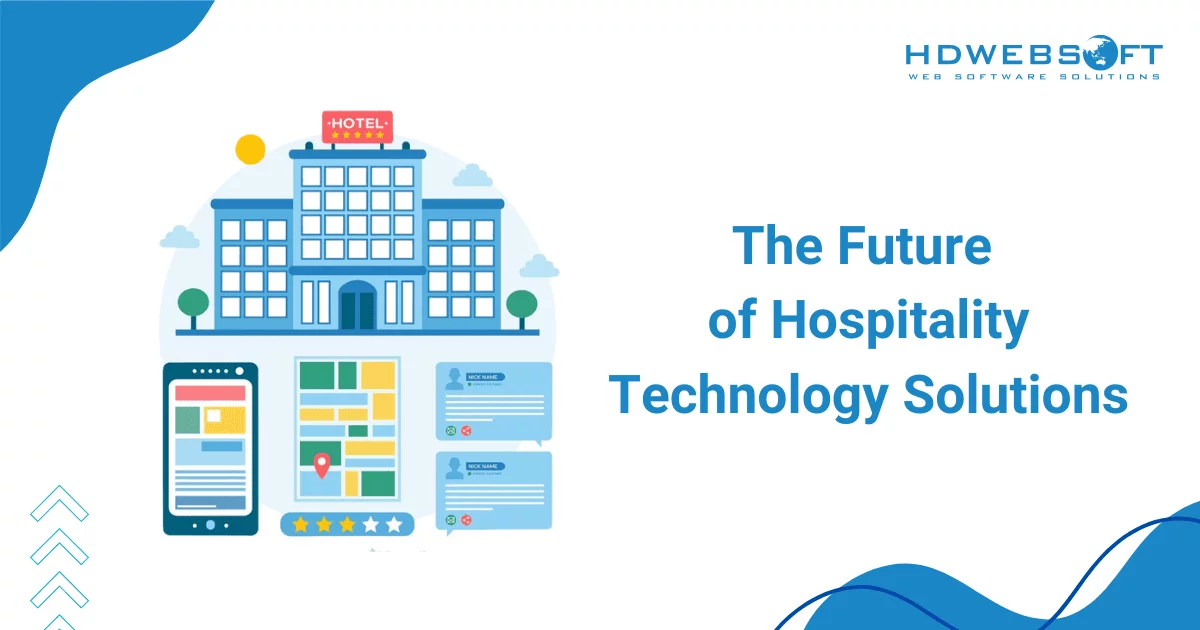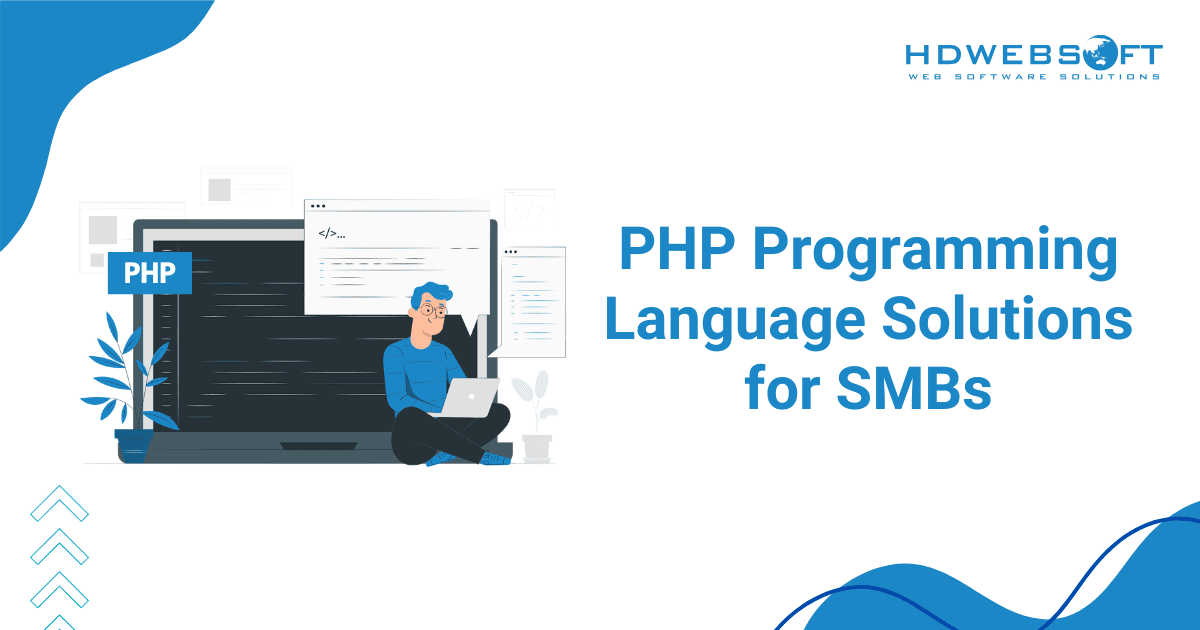
PHP Programming Language Solutions for SMBs
The PHP programming language is one of the most widely used technologies for building dynamic websites and applications. In today’s fast-paced digital world, small and medium-sized businesses (SMBs) need effective, scalable, and cost-efficient solutions to remain competitive. Despite the emergence of new programming languages and frameworks, PHP continues to be a popular choice for its functionality and affordability.
This blog will explore PHP’s strengths and weaknesses and its ongoing relevance. Most importantly, we will uncover why it remains an excellent option for many SMBs.
What is PHP Programming Language?
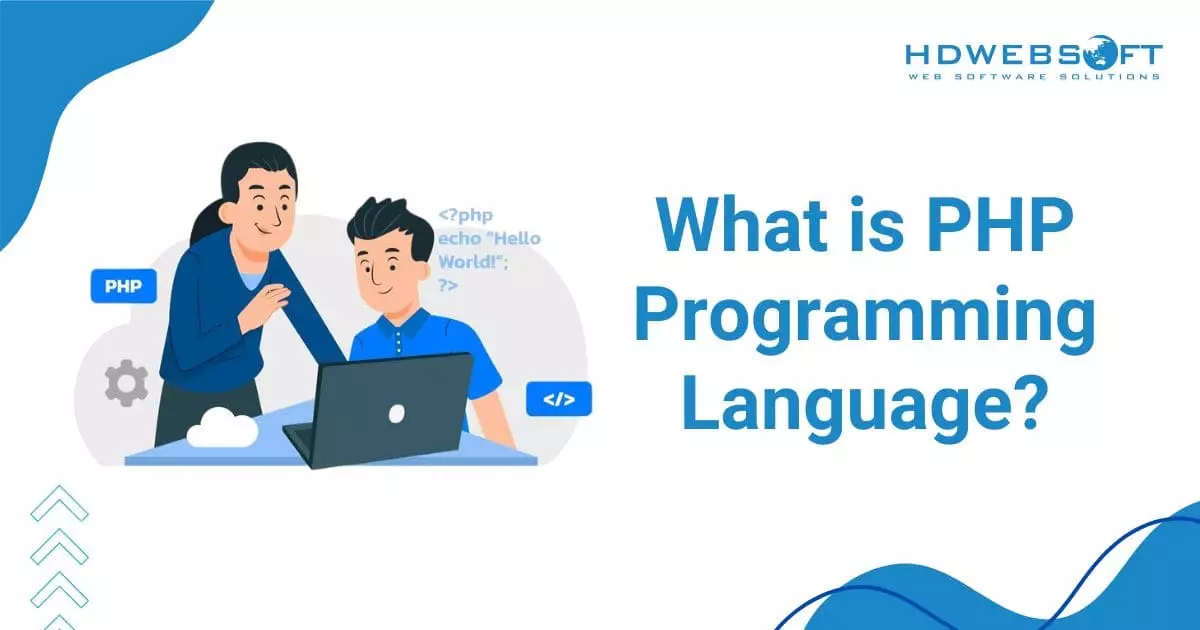
PHP (Hypertext Preprocessor) is a widely used open-source server-side scripting language designed primarily for web development. Originally created by Rasmus Lerdorf in 1994, PHP has evolved over the years into a mature and powerful tool that powers millions of websites globally.
The language is known for its ease of use, flexibility, and strong support for database integration, particularly with MySQL. This makes it ideal for building content management systems (CMS), e-commerce platforms, and other web applications. As of 2023, PHP programming language is used by 77.5% of all websites whose server-side script is known.
PHP’s popularity stems from its simplicity, which allows developers to build and deploy web applications quickly. It’s compatible with most web servers and platforms, and its extensive library of frameworks and tools makes development faster and more efficient. Moreover, PHP offers the flexibility to develop anything from basic websites to complex applications without incurring hefty costs.
Is PHP Becoming Irrelevant?
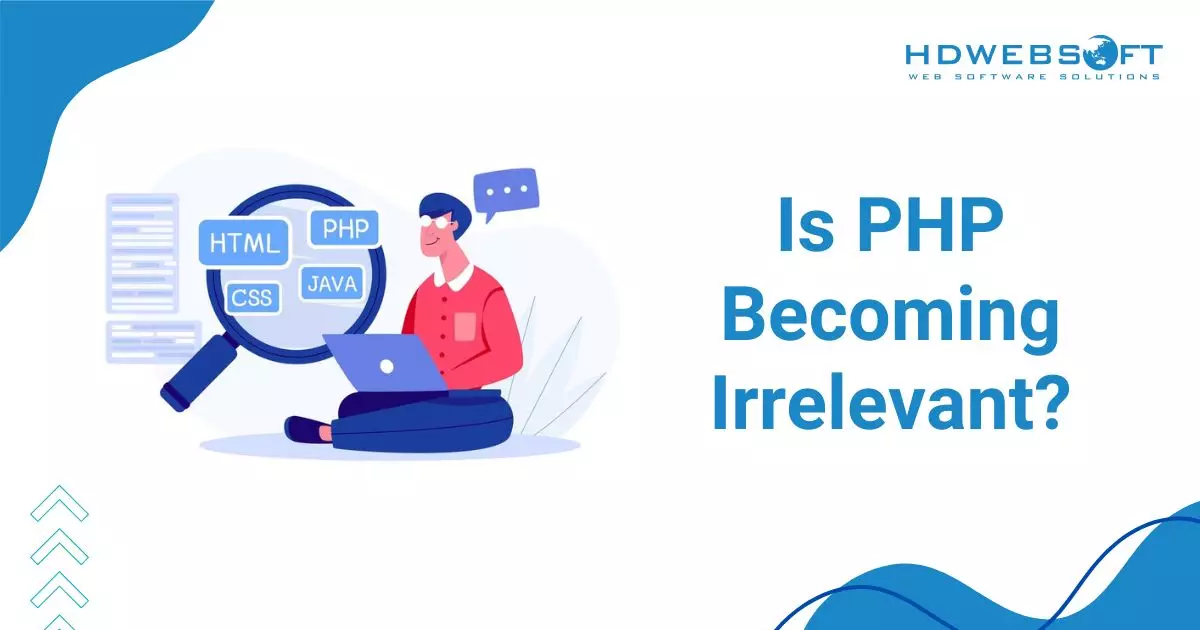
One of the most debated questions in the developer community is, “Is PHP becoming irrelevant?” Despite some claims about the decline of PHP’s relevance, the numbers tell a different story. While newer programming languages like Python and JavaScript have gained traction, PHP continues to maintain a strong presence. In fact, it still powers popular platforms such as WordPress, which is widely used by businesses of all sizes.
According to a report, PHP programming language remains the most popular backend language among developers, especially for web development. SMBs, particularly those seeking affordable and effective web development solutions, continue to rely on PHP. This is because of its proven track record, large community, and extensive support for building dynamic web applications.
The claim that PHP is “irrelevant” is more reflective of trends in high-end tech companies shifting towards newer languages and frameworks. However, for SMBs that need scalable, functional, and budget-friendly solutions, PHP remains a solid and competitive option.
What is PHP Programming Language Used For?
PHP is one of the most popular choices for web development. It powers millions of websites globally, thanks to its ability to create dynamic and interactive web pages. Below, we’ll explore some of the key areas where PHP is commonly used.
Dynamic Website Development
One of the primary uses of the PHP programming language is for creating dynamic websites. Unlike static websites, which display the same content to all users, dynamic websites deliver personalized experiences.
PHP enables websites to fetch data from databases and present it based on user input or preferences. This is why popular platforms like WordPress, Joomla, and Drupal rely on PHP to power their content management systems (CMS). In fact, WordPress, which powers 43.5% of websites globally, uses PHP as its core language.
Take a look at HDWEBSOFT WordPress Development Service.
For SMBs, PHP’s ability to handle dynamic content means they can build both interactive and easy-to-manage websites. Whether it’s updating blog posts, product catalogs, or customer information, PHP allows non-technical users to make changes without needing to modify the codebase directly.
E-commerce Platforms
Another significant use case for PHP frameworks is in developing e-commerce platforms. Specifically, many well-known e-commerce solutions, such as Magento, OpenCart, and PrestaShop, are built using PHP programming language. These platforms allow businesses to manage online stores with functionalities like product listings, shopping carts, payment gateways, and order tracking.
PHP’s database integration capabilities, particularly with MySQL, make it a reliable choice for handling large amounts of data in e-commerce. Furthermore, it provides the scalability to manage thousands of products and handle high traffic during peak shopping seasons. As a result, SMBs can leverage these PHP-powered platforms to create cost-effective, scalable e-commerce stores that offer smooth shopping experiences.
Web Applications
Beyond websites, PHP is also widely used to build custom web applications. These applications can be anything from customer portals to CRM systems or even internal tools designed to streamline business operations. PHP’s flexibility makes it well-suited for developing applications that require user authentication, data processing, and complex business logic.
Frameworks such as Laravel and Symfony have further expanded the use of PHP programming language in web application development. These frameworks offer pre-built functionalities and tools that speed up development, making it easier for developers to create complex applications without reinventing the wheel.
Further reading: Why Laravel is the Best PHP Framework.
API Development
PHP is commonly used for developing APIs, which allow different software applications to communicate with each other. PHP frameworks like Lumen, a micro-framework by Laravel, are specifically designed to handle API development. The syntax makes it simpler to build RESTful APIs that can serve data to mobile apps, websites, or other systems.
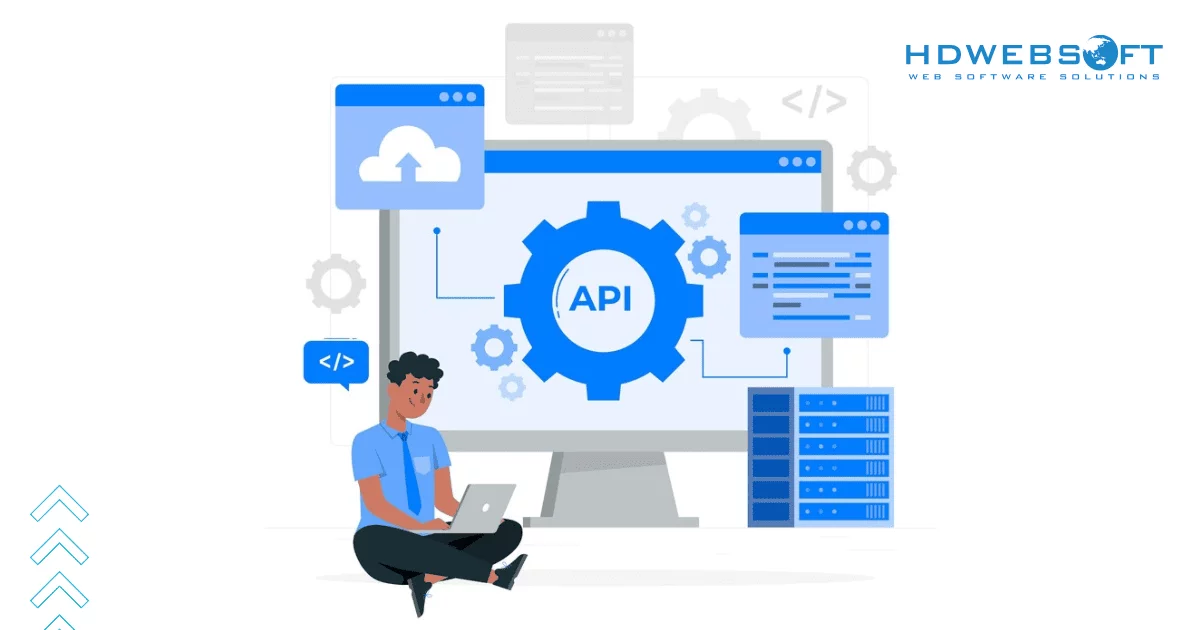
Developing API is one of the feature where PHP programming language shines.
In the era of microservices and interconnected systems, the ability to build APIs is crucial. By using PHP for API development, businesses can easily connect their various digital services and ensure smooth data exchange between different platforms.
Server-Side Scripting
At its core, the PHP programming language is a server-side scripting language. This means that it runs on the server and processes data before sending the output to the user’s browser. For that reason, PHP is ideal for handling tasks like form submissions, user authentication, and data storage. Since PHP runs on the server, it keeps sensitive information like passwords and personal details secure, ultimately ensuring a safer web experience for users.
For SMBs, using PHP for server-side scripting offers a reliable way to manage business operations that require secure handling of customer data or transactions.
Content Management Systems (CMS)
Many CMS platforms are built on PHP and are frequently used to manage websites without needing extensive technical knowledge. These platforms allow users to edit and publish content easily. On that account, PHP has become a popular choice for SMBs that need affordable and user-friendly solutions for managing their digital presence.
Through the PHP programming language, businesses can set up feature-rich CMS solution development that streamlines content creation, updates, and management. This approach helps a lot in minimizing the need for ongoing technical support.
Why is PHP a top choice for SMBs?
While there are many programming languages to choose from, PHP stands out as a practical option for businesses with limited resources. Let’s explore why PHP remains such a popular choice for SMBs.
Cost-Effectiveness
One of the main reasons why PHP is a top choice for SMBs is its cost-effectiveness. PHP is an open-source language, meaning there are no licensing fees associated with using it. Resultantly, this makes it highly accessible for businesses that are working with limited budgets but still need robust web solutions. Additionally, the wide availability of free PHP frameworks, tools, and libraries further reduces development costs.
SMBs often need to get the most out of every dollar spent. PHP programming language allows them to build powerful websites and applications without the overhead of expensive proprietary technologies. Moreover, because PHP developers are widely available and generally more affordable than developers specialized in other languages, businesses can reduce their labor costs as well.
Fast and Easy Development
For SMBs, time is often of the essence, especially when trying to establish a presence in a competitive market. PHP back-end language is known for its simplicity, which makes development faster and more efficient. With its intuitive syntax and vast library of functions, developers can quickly write and deploy code. Therefore, SMBs can get their websites or applications up and running in less time.
Additionally, PHP’s large ecosystem of frameworks, such as Laravel, Symfony, and CodeIgniter, offers pre-built functionalities that streamline development. These frameworks allow developers to focus on customizing features for the business rather than building everything from scratch. As a desirable result, it saves both time and money for SMBs.

With a large framework ecosystem, PHP programming language boosts the web development process and deployment.
Flexibility and Scalability
SMBs need solutions that can grow with their business. PHP programming language offers the flexibility to create anything from simple static websites to complex, data-driven web applications. In addition, PHP works well with a wide range of databases, including MySQL, PostgreSQL, and even NoSQL databases like MongoDB. Consequently, this makes it suitable for a variety of business needs.
Another key advantage is PHP’s ability to scale, making it an ideal choice for a scalable software solution. As a business grows and its digital requirements expand, PHP can be adapted to handle increased traffic and complex functionalities. Whether you’re adding new features to an e-commerce platform or upgrading a CMS. In either case, PHP provides the flexibility to evolve with your business without having to overhaul the existing system completely.
Cross-Platform Compatibility
For SMBs, flexibility in hosting and server environments is crucial, especially when cost and operational constraints come into play. PHP is compatible with various platforms, including Windows, Linux, macOS, and web servers like Apache and Nginx. This cross-platform compatibility makes the PHP programming language a highly versatile choice. Thus, it gives businesses the freedom to choose the infrastructure that best fits their needs and budget.
This adaptability also means that SMBs can easily move their applications between hosting environments without major disruptions. Whether using a dedicated server, shared hosting, or cloud-based solutions, PHP runs smoothly across all platforms.
Strong Community Support and Resources
One of the greatest advantages of PHP syntax is its vast, active community. PHP has been around for decades, and during that time, it has amassed a large base of developers who contribute to its continuous improvement. This active community means there’s no shortage of tutorials, documentation, and forums where developers can seek advice, share knowledge, and troubleshoot problems.
For SMBs, this extensive community support is invaluable. It ensures that PHP developers can quickly find solutions to common issues, reducing downtime and keeping projects on track. Additionally, with frequent updates and new tools being introduced, businesses can rely on PHP to stay relevant and up to date with modern web development trends.

The large community support and accessible tools are truly valuable advantages for the PHP programming language.
The Disadvantages of PHP Programming Language
Like any technology, PHP programming language has certain drawbacks that businesses and developers need to be aware of. Let’s explore some of the key disadvantages associated with PHP.
Security Vulnerabilities
One of the most frequently cited disadvantages of PHP is its vulnerability to security threats. Since PHP is open-source and has been around for so long, it has been a common target for hackers.
Although PHP itself is secure, many inexperienced developers fail to implement proper security measures. It can lead to issues such as SQL injection, cross-site scripting (XSS), and session hijacking. Therefore, securing a PHP application often requires additional tools and practices to mitigate these risks.
For SMBs or businesses without access to experienced PHP developers, maintaining the security of a PHP-based website or application can sometimes become a challenge.
Outdated and Inconsistent Versions
Another drawback of the PHP programming language is the inconsistency in versioning and updates. While newer versions of PHP have introduced significant performance and security improvements, many websites still run on older versions. As a result, these older versions are less efficient and more vulnerable to threats. Moreover, migrating to newer versions can sometimes be a complex process, especially if a business’s codebase is large and outdated.
This inconsistency in versions can lead to compatibility issues. Additionally, for businesses without dedicated development resources, updating their PHP-based systems may be time-consuming and costly.

When a newer version of PHP is released, the older versions become incompatibility.
Slower Performance for Larger Applications
Although PHP is great for small to medium-sized web applications, it may struggle when handling larger, enterprise-scale systems. In contrast, compared to newer languages like Python or Node.js, the PHP syntax tends to exhibit slower performance. This limitation becomes more noticeable when managing highly complex applications with heavy traffic and large databases.
While tools and extensions can be used to optimize PHP’s performance, they may not be sufficient for businesses that expect significant scaling. For large-scale projects, the PHP programming language may fail to deliver the same speed and efficiency as some competitors.
Limited Built-In Modular Features
PHP lacks some built-in modularity compared to other modern programming languages. While frameworks like Laravel and Symfony attempt to fill this gap by offering modular structures and reusable components, PHP’s core form requires additional effort.
With that in mind, maintaining clean, modular code in PHP without using these frameworks can be more challenging for developers. The lack of built-in modularity can lead to unmanageable codebases, especially in projects that grow over time without proper oversight.
This is particularly concerning for SMBs that lack access to senior developers who can maintain best practices in code organization.
Conclusion
The PHP programming language remains a valuable and practical solution for SMBs looking to develop dynamic websites and web applications. Its advantages make it an ideal choice for businesses that need robust, scalable solutions without breaking the bank. While there are some limitations, PHP continues to evolve, proving that it is far from obsolete. By carefully weighing the pros and cons, SMBs can leverage PHP to build functional and reliable solutions that support their growth and success in an increasingly digital world.
HDWEBSOFT is a trusted provider of PHP development solutions. We specialize in delivering scalable and cost-effective software tailored to meet the needs of businesses of all sizes. With a team of experienced PHP developers, we’re committed to building dynamic, feature-rich software that helps businesses grow and thrive in the digital landscape. Contact us today for a consultation!








